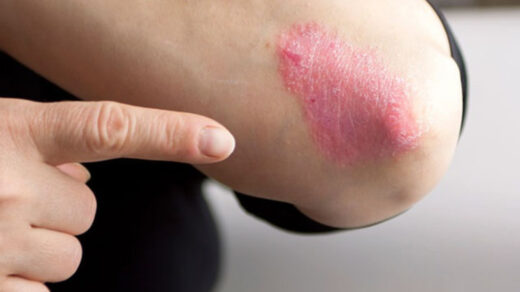The Concept of Mala – Waste Products in Ayurveda
In Ayurveda, Mala refers to the waste products or by-products that are produced during the metabolic and physiological functions of the body. These wastes can be in the form of excretions such as urine, feces, sweat, and even other metabolic by-products like mucus or the oils secreted from the skin. 
Mala is a natural byproduct of the body’s activities, and it’s essential for maintaining the balance of the body’s internal environment. Malas are critical for health and well-being because they help the body detoxify and cleanse itself.
In Ayurveda, they are considered one of the three fundamental pillars of health, alongside Doshas (the energies that govern bodily functions) and Dhatus (the bodily tissues).
If the malas are not properly eliminated, they can accumulate and lead to imbalances, resulting in diseases and discomfort. Proper removal and elimination of these waste products is thus crucial for overall vitality and wellness.
3 Malas in Ayurveda
In Ayurveda, the three malas (waste products) play a critical role in maintaining health and balance within the body. These are:
1. Purisha (Feces):
Purisha is the waste material excreted through the intestines after digestion. It is primarily composed of undigested food particles, excess water, and metabolic by-products.
- Element: Earth (Bhoomi)
- Function: Purisha is responsible for maintaining colon function and plays a role in eliminating excess toxins and water from the body. Proper bowel movement is crucial for digestion, and it helps in balancing Vata and Agni (digestive fire).
- Imbalances: If the elimination process is impaired, it can lead to constipation, bloating, or abdominal discomfort, often resulting from excess Kapha or Vata imbalances.
2. Mutra (Urine)
Mutra is the waste product expelled by the kidneys through urination. It is the filtered by-product of blood, containing excess water, salts, toxins, and metabolic waste.
- Element: Water (Jala) and Fire (Agni)
- Function: Mutra helps regulate the body’s water balance, electrolytes, and removes metabolic toxins. It is also important in maintaining kidney function.
- Imbalances: An imbalance in Mutra can lead to issues such as urinary tract infections (UTIs), kidney stones, or fluid retention, especially if there is excess Pitta (which can lead to more acidic urine) or Vata (which can cause irregular urination).
3. Sweda (Sweat)
Sweda is the fluid that the body excretes through the sweat glands to cool down the body and regulate temperature. It is composed primarily of water, salts, and trace toxins.
- Element: Water (Jala)
- Function: Sweda plays an important role in thermoregulation (maintaining body temperature), moisturizing the skin, and helping to eliminate certain toxins through the skin.
- Imbalances: Excessive or insufficient sweating can indicate Pitta imbalance (excessive sweating, leading to heat and irritation) or Vata imbalance (dryness, leading to insufficient sweating and dehydration).
Summary of the Three Malas:
- Purisha (Feces): Eliminates undigested food and excess water, balancing the digestive system.
- Mutra (Urine): Removes toxins and regulates the body’s fluid balance.
- Sweda (Sweat): Regulates body temperature, hydrates the skin, and helps detoxify.
Maintaining a proper balance in these malas is crucial for overall health, and imbalances often indicate deeper disruptions in the body’s systems, including doshas or metabolic functions.
Classification of Mala
Ahara Mala (Waste from Food Digestion):
These are the waste products generated from the digestion and processing of food.
- Purisha (Feces): Composed mainly of the earth element (bhoomi), it plays a vital role in supporting colon function and maintaining digestive health. The waste is formed after the body absorbs nutrients and water from food. Imbalances can lead to issues such as constipation, bloating, diarrhea, or abdominal pain.
- Mutra (Urine): Composed of water (jal) and fire (agni), it helps regulate the body’s water balance and flushes out toxins from the body. It is produced by the kidneys after filtration of the blood. Imbalances in urine can lead to urinary tract infections, kidney stones, or difficulties in fluid retention.
- Sweda (Sweat): Composed mainly of water, sweat plays a crucial role in regulating the body’s temperature and promoting skin health. It also helps eliminate certain toxins through the skin. Imbalances can cause issues like dehydration, dry skin, excessive perspiration, or fungal infections.
Dhatu Mala (Waste from Tissue Metabolism):
These wastes are generated from the metabolic processes within the tissues (Dhatus) of the body.
This category includes by-products such as secretions from the nose, eyes, ears, and other tissues, along with hair, nails, and exhaled carbon dioxide. These waste products are natural and necessary for the body’s functions, but their accumulation or imbalance can lead to discomfort or disease.
Examples:
- Kapha Mala (Mucus) from the Rasa Dhatu (plasma tissue): This thick fluid is part of the body’s defense mechanism but can cause congestion when it accumulates or becomes excessive.
- Pitta Mala (Bile) from the Rakta Dhatu (blood tissue): Bile is produced in the liver and aids in digestion but can become problematic when it’s in excess, leading to digestive disturbances.
- Sweat from Meda Dhatu (fat tissue): Sweat is a by-product of the metabolic processes in fat cells. Excessive sweat or a lack of sweating can indicate metabolic or health imbalances.
Functions of Mala
Purisha (Feces):
- Function: Purisha plays a key role in maintaining colon tone, supporting digestion, and regulating Vata (the energy responsible for movement) and Agni (the digestive fire). It helps eliminate unused or undigested food particles and balances the digestive system, preventing the build-up of waste in the intestines.
- Impact on Health: Proper elimination helps prevent constipation, bloating, or other digestive issues, supporting overall digestive health.
Mutra (Urine):
- Function: Mutra balances the body’s water and electrolyte levels, removes toxins from the bloodstream, and supports kidney function. It is a key mechanism for the body to rid itself of excess waste products filtered by the kidneys.
- Impact on Health: Regular urination is essential for detoxification and fluid regulation. Imbalances can affect the kidneys, leading to issues such as urinary tract infections or fluid retention.
Sweda (Sweat):
- Function: Sweda regulates body temperature, moisturizes the skin, and assists in the elimination of certain toxins through the skin. It is vital for cooling the body during heat and physical exertion, while also supporting healthy skin.
- Impact on Health: Sweating can prevent overheating, maintain skin hydration, and help detoxify the body. Imbalances, such as excessive sweating or dryness, can lead to dehydration, skin issues, or fungal infections.
Dhatu Mala (Waste from Tissue Metabolism):
- Function: Dhatu Mala plays an important role in tissue detoxification, ensuring that waste produced by the body’s metabolic processes is eliminated efficiently. This waste facilitates the renewal of tissues and ensures proper cellular function.
- Impact on Health: These wastes are necessary for maintaining tissue health, and their elimination helps avoid the accumulation of excess material that could lead to blockages or imbalances in various bodily systems.
Impact of Mala Imbalance
Excessive Mala:
Effect on Health: When there is an excess of any type of mala (waste product), it can lead to various health issues. For instance:
- Excess Purisha (Feces): Can cause constipation or bloating due to the body’s inability to eliminate waste properly, often leading to discomfort and digestive issues.
- Excess Mutra (Urine): Excessive urination or urinary tract infections can occur when there’s an overload of waste being processed by the kidneys, making them work harder than necessary. This can also affect electrolyte balance.
- Excess Sweda (Sweat): When there is excessive sweating, it can result in skin disorders like rashes, fungal infections, or dehydration due to fluid loss, often making the skin appear dry or irritated.
Deficient Mala:
Effect on Health: When the body does not produce or eliminate enough of a specific type of mala, it can lead to health complications:
- Deficient Purisha (Feces): Lack of proper bowel movements can lead to constipation, bloating, and discomfort due to the body’s inability to clear out waste properly.
- Deficient Mutra (Urine): Insufficient urination can lead to dehydration or kidney stones, as waste products accumulate in the kidneys and urinary system, making it harder to filter out toxins effectively.
- Deficient Sweda (Sweat): When sweat is insufficient, it can result in dry skin, overheating, or inability to regulate body temperature, making the skin feel tight or lack moisture.
Abnormal Mala:
Effect on Health: Abnormalities in mala often indicate deeper issues related to dosha imbalances or chronic diseases.
- Mala abnormalities can signal underlying conditions such as diabetes or rheumatoid arthritis. For example, excessive glucose in the urine may indicate diabetes, and the presence of abnormal joint secretions can signal inflammatory conditions like rheumatoid arthritis. These abnormalities need to be addressed by correcting the root dosha imbalances or treating the underlying disease.
Role of Mala in Diagnosis and Treatment
Diagnostic Tool:
Examination of Mala (Stool, Urine, and Sweat): In Ayurveda, the examination of the body’s waste products is a crucial diagnostic tool. By analyzing stool, urine, and sweat, Ayurvedic practitioners can gain insights into the state of a person’s health and identify imbalances in the doshas (Vata, Pitta, Kapha) as well as possible diseases.
- For example, changes in the stool (such as color, consistency, and frequency) can point to digestive disturbances or dosha imbalances, such as excess Pitta (leading to diarrhea) or excess Kapha (causing constipation).
- Urine analysis can reveal excess toxins or imbalances in Vata (leading to frequency issues) or Pitta (resulting in more acidic urine).
- Sweat analysis provides clues about Pitta (indicating heat and excess sweating) or Vata (suggesting dehydration and lack of moisture in the skin).
Treatment Principles:
For Excessive Mala:
When there is an overload of waste products (excessive mala), the primary treatment focus is to promote elimination and detoxification. One of the most effective treatments for this is Panchakarma, which is a set of five Ayurvedic detoxification therapies designed to purify the body. These therapies help remove excess waste, balance the doshas, and restore harmony in the body.
- Example therapies include Vamana (therapeutic vomiting), Virechana (purgation), and Basti (enema) to clear out excessive doshas and mala from the body.
For Deficient Mala:
If the body is not producing enough waste or eliminating it effectively (deficient mala), the treatment approach focuses on nourishing and restoring balance to the digestive system and the body’s overall metabolism. This can be done through dietary adjustments and herbal remedies that support proper digestion, hydration, and detoxification.
- Dietary changes might include consuming easily digestible foods, hydrating with herbal teas, and using specific herbs like Triphala to promote regular bowel movements and cumin or ginger to support digestion.
For Abnormal Mala:
If mala becomes abnormal (such as the presence of unusual substances in the urine, stool, or sweat), it often indicates an underlying issue with the digestive fire (Agni) or the metabolism of tissues (Dhatu Agni). The treatment strategy will focus on correcting the digestive fire and restoring normal tissue metabolism.
- Agni can be strengthened with herbal formulas like Guduchi (to balance immune function and metabolism) or Pippali (to enhance digestion).
- Restoring Dhatu Agni involves improving the digestion and absorption of nutrients in the body’s tissues, which can be supported through specific Ayurvedic dietary practices and panchakarma treatments aimed at nourishing the tissues.
FAQ’s
1. What is the concept of malas?
Malas are waste products in the body (feces, urine, sweat) that need to be properly eliminated to maintain health. Their proper elimination is essential for preventing disease and maintaining balance in the body.
2. How many malas are present in our body?
There are three malas: Purisha (feces), Mutra (urine), and Sweda (sweat). These waste products are necessary for detoxification and overall body function.
3. What does mala mean in Ayurveda?
In Ayurveda, mala refers to bodily waste products that must be excreted for health and balance. The elimination of malas helps to remove toxins and excess waste from the body.
4. What are the three types of mala?
The three malas are: Purisha (feces), Mutra (urine), and Sweda (sweat). Each type of mala plays a unique role in the body’s waste management and detoxification processes.
5. What are the 7 dhatus in Ayurveda?
The 7 dhatus are: Rasa (plasma), Rakta (blood), Mamsa (muscle), Meda (fat), Asthi (bone), Majja (bone marrow), and Shukra (reproductive tissue). These tissues provide nourishment and structure to the body.
6. What are the three Agnis?
The three Agnis are: Jatharagni (digestive fire), Bhutagni (elemental fire), and Dhatvagni (tissue fire). Each Agni is responsible for the transformation of food and elements in the body.
7. What is the advantage of mala?
Proper elimination of malas helps remove toxins and excess waste, promoting health and balance. When malas are balanced, they support overall well-being and prevent disease.
8. What are dosha, dhatu, and mala?
- Dosha: Energies (Vata, Pitta, Kapha) governing bodily functions.
- Dhatu: The 7 tissues that nourish the body.
- Mala: Waste products that need to be eliminated.
- Each of these elements plays a vital role in maintaining the body’s health.
9. What is Panchmahabhut?
Panchmahabhut refers to the 5 elements: Earth, Water, Fire, Air, and Ether. These elements are the foundation of all matter and influence the body’s composition and functions.
10. What is the relationship between malas and doshas?
Malas are influenced by the doshas. Imbalances in Vata, Pitta, or Kapha can affect the formation and elimination of malas, leading to health issues. For example, excess Pitta can cause acidic urine, while Vata imbalance may lead to constipation. Managing doshas helps maintain the balance of malas.
In Ayurveda, malas are essential waste products—feces, urine, and sweat—that are crucial for maintaining the body’s balance and health. Proper elimination of malas is necessary to prevent the buildup of toxins and ensure optimal functioning of the body’s systems.
References:

























